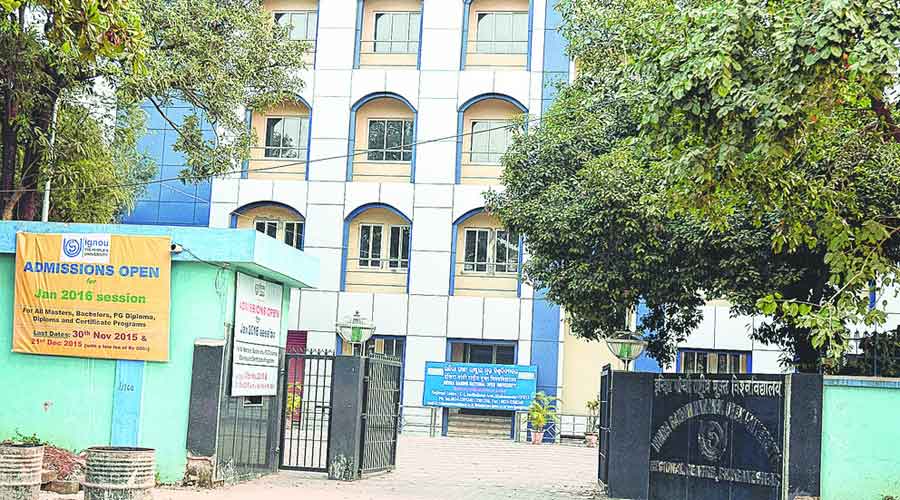Several scientists have closed ranks to accuse Indira Gandhi National Open University (Ignou) of promoting “pseudoscience” after the institute last week launched a postgraduate programme in astrology to make students “employable in the field of jyotish”.
The master’s degree programme in jyotish (MAJY), launched by the Centre-run Ignou on June 24, will be conducted through the distance mode, as are its other courses.
More than 1,000 scientists and academics have already signed a note that acknowledges India’s rich tradition of mathematical astronomy dating back to the Vedic period.
“However, these achievements cannot and should not be used as a proxy to justify claims that the positions of the planets somehow have an impact on anyone’s daily life, or instruments like horoscopes can actually predict anyone’s future,” the note said.
“It has been conclusively proven through numerous scientific studies around the world that phal-jyotish or astrology has no logical basis and the claimed successes do not stand statistical scrutiny,” the scientists’ note added.
After more signatures are collected, the group of scientists will approach the three national science academies, urging them to issue a statement against the study of astrology.
The scientists pointed out that the last time a concerted push was made to introduce astrology in academics was in 2001, when a BJP government under Atal Bihari Vajpayee was in place. Since then, several universities have been offering postgraduate courses in astrology.
Aniket Sule, a signatory to the note and associate professor at the Homi Bhabha Centre for Science Education, Tata Institute of Fundamental Research, Mumbai, said astrology was yet to produce any evidence that could justify its positioning as a branch of knowledge.
“When Murli Manohar Joshi was the human resource development minister, the first big attempt was made to promote this pseudoscience in institutions. Now it is again getting importance. This is happening because either there is a nudge from the government to institutions or some institution heads are taking such measures to please the government,” Sule told The Telegraph.
Higher education regulator University Grants Commission had in February 2001 issued a notification to universities seeking a proposal for starting courses on “Jyotir Vigyan” (Vedic astrology) as a science course. The UGC had also suggested the introduction of “Karmakanda” as a vocational subject. Many universities started these courses.
“We will seek the intervention of the UGC to stop universities from offering courses in astrology,” Sule said.
Ignou vice-chancellor Nageshwar Rao said the university started the astrology course as part of its efforts to promote the Indian knowledge system, as suggested by the BJP government’s new National Education Policy.
“The NEP has laid emphasis on the Indian knowledge system. This course will promote the Indian knowledge system. What we are doing is not new. Many universities had already started this much before us. The UGC has a paper on this in the National Eligibility Test,” he said.
The NET is held to determine eligibility for the post of assistant professor and also for the award of Junior Research Fellowship in universities and colleges.
Rao said the astrology course would not spread any blind beliefs or superstitions.
Analysing the astrology courses offered by several universities, the scientists and academics have found that the teaching of traditional methods of mathematical astronomy constituted only a minor part. These courses are pandering to the “pseudoscience” of astrology and not focusing on the real history of Indian astronomy, the scientists feel.
The note said it was time for the scientifically minded citizenry to raise their voices against “unscientific” pursuits such as astrology.
The signatories include Soumitro Banerjee and Prof. Dibyendu Nandi from the Indian Institute of Science Education and Research, Calcutta; S. Krishnaswamy from Madurai Kamraj University; Nissim Kanekar of the National Centre for Radio Astrophysics-Tata Institute of Fundamental Research, Pune; and S.G. Dani from the Centre for Excellence in Basic Science, Mumbai.
Rationalist Sudesh Ghoderao, the secretary of the Maharashtra Andhashraddha Nirmoolan Samiti (MANS) and a faculty member of Bytco College, Nashik, said universities offering courses in astrology would only help the practice gain legitimacy in society.
Ghoderao said the NEP’s stress on the Indian knowledge system was encouraging institutions to start courses in areas that had no scientific basis. He said it would have been better had Ignou started courses on health and hygiene during the pandemic.
Chandramauli Upadhyaya, retired faculty member of jyotish at Banaras Hindu University, said the department had been there since the inception of the university in 1916. He asked the critics to present their specific objections to astrology.
“We predict based on planetary positions. This gives 70 per cent success rate. Even modern medical science does not give 100 per cent success. Still if they have any specific objections, they must tell us,” Upadhyaya said.












